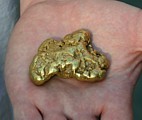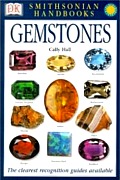PART 1: Ten common scams perpetrated on eBay:
Here's a listing of the ten of the most common scams which continue to be used on eBay in various forms and mutations meant to trick the gullible eBay viewer into permanently parting with his or her cash. Many of these are standard con games which have been used for many years outside the Internet, but are now being modified and adapted for use on eBay and other similar auction sites.
1. Take over someone else’s account, and if possible, steal their whole identity: This scam is so pervasive that everyone who has an account with eBay and actually uses regularly it to buy or sell will eventually receive some of these emails attempting to trick them into revealing their personal information - it is that pervasive. It is basically a version of identity theft. The first versions of these were pretty obvious frauds and only the most gullible would swallow them. But as time wore on the con men got more and more sophisticated. EBay logos and insignias are used and the phony emails are closely modeled after the real ones. It is sometimes very difficult to tell which messages are legitimate contacts from eBay and which are criminals trying to steal your personal information. EBay considers these as merely “spoofs” - I had always considered that a spoof was a silly prank, something done to make fun of someone. These are not silly little spoofs, they are criminal attempts to steal your identity and a very serious matter indeed.
2. Sell what you don’t own: This is the number 1 most common crime on eBay. It's is the old “sell
what you don’t own” scam. The seller creates a fake identity and gets registered
on eBay. He then conducts some small scale business in inexpensive items to get a few
positive feedback, usually both buying and selling. Some scammers have actually created
computer programs to set up these phony Ids for them by the hundreds. During this time
period, the scammer collects photos of expensive items, which he would like to
“sell”. Typical items for sale under this type of scheme include expensive
jewelry, gold, coins or high dollar electronics like iPods, laptop computers, or fancy
stereo systems. The hallmarks of this scam are:
1) A
seller who is recently registered and has limited feedback (say less than 6 months since
registering and fewer than 50 feedbacks); 2) The
seller has previously bought and sold a few items mostly of around $10 or less
– many are done for less than $1; 3) Then
suddenly is selling from 20 to several hundred items with a normal value of over $100 for
sale; 4) Often
truly valuable items will start for a ridiculously low price like 99 cents; 5) The
seller wants payment by some method other than paypal or a standard credit card. Often
they request payment by cash, check or Western Union.
If you see something like that, RUN AWAY! Its probably 99.9% chance it’s a rip off
scam. Don’t risk the one-in-a-million chance its legit, be safe and keep you my in
your pocket.


3.
Old School Bait and Switch Tactics: There are many versions of this scam which really is as old as the hills. You
offer something that sounds great and deliver something that isn’t worth a fraction
of the original item. The
important thing in this scam is that the seller doesn’t tell the buyer the truth that
he needs to know. It is perfectly legal and lawful to sell synthetic sapphires when you
are honest and tell the buyer he is purchasing a man made sapphire manufactured in a
factory. It’s when you call that exact same stone natural and genuine and
specifically never tell him that it’s man made, then the seller is committing fraud.
A large amount of these types of crimes occur on eBay and often the buyer may never even
figure it out.
There are sellers currently offering glass or synthetic stones and describing them as if
they were natural ones mined from the earth. Jewelry is sold which is actually gold filled
or gold plated but described to the buyer as “solid” gold. Supposedly natural
gold nuggets are instead made of 14K jewelry gold or even brass (natural gold nuggets are
normally 20 to 23 K gold). Fraudulent copies of valuables such as antiques are offered and
yet described in detail as if they were the genuine item. Don’t be a sucker
for this sort of thing.
The hallmarks of this scam are usually prices that just seem too good to be true. There is
no honesty test sellers which sellers have take and pass before they can sell on eBay. There
is no free lunch, either. Remember that real valuables, things like hand crafted turquoise
jewelry, gold rings and true antiques don’t sell for 99 cents each. I can’t say
why, but if people saw these types of silly offerings in a brick and mortar store they
would laugh at the seller, but if they see it on eBay, somehow they believe it has to be
real.
EBay has their feedback system which they highly tout, but it is not perfect. With
fraudulent identifications by the score, its easy to give yourself good feedback and
defeat the system. Dishonest folks have also figured out that you can buy a few dozen or
100 small inexpensive items and build up what appears to be good feedback, and that is a
small investment in comparison to what that can make stealing from hundreds of folks
looking for a bargain on eBay.
4. Pyramid Scheme Recruitment: Pyramid schemes are also known as Ponzi schemes, and they depend on more and more new members coming in to pay off the original members. Typically they may go something like this: you see an offer on eBay for a free iPod or plane tickets or something valuable, you're told not to actually bid here, but if you buy something elsewhere (usually on their website at an inflated price) you will also get the free goods you were promised. Unfortunately you find out when you complete the transaction that you have to get another 10 people (maybe more) to come in and buy the same inflated price goods before you can get your free item. Although these ads are genuinely criminal activity, and violate a number of eBay policies, eBay puts little priority on this, and is virtually uninterested in this problem. It has therefore blossomed and become quite common.

Natural Nevada Turquoise Jewelry

Sterling Silver Gemstone Jewelry
5. Fencing Stolen Property on EBay: Where's the best place to take your stolen goods in order to get the best price for them? Maybe in the old days it used to be the local pawn shop, but in the Internet age there's no doubt eBay is the ideal place to sell those items which are just “too hot to handle”. Selling on eBay allows the criminal to cut out the middleman and market his stolen wares directly to the public. Unfortunately, these are some of the hardest crimes to identify on eBay. As long as the seller delivers the goods and the buyer is satisfied, there is no way to really know that there is a problem until the police contact you based on the seller's sale records. In all cases of stolen goods, it does not matter that you paid for them - they must be given back because they belong to the original owners. The money you paid to the crook is simply lost.
6. Selling illegal and counterfeit goods: This would be something that may or may not have been acquired without committing a crime, but these items are against the law to sell or market for money. This would include things like body parts. It would also include illegal and counterfeit copies of software, movies and other copyrighted or trademarked items - some of which are done up very well and appear legitimate, including any normally associated printed materials. As a result, quality copies and knock-offs are hard to differentiate from the legitimate goods. Your basic knockoff / fake Rolex watch fits into this category. EBay actually does a fairly good job of dealing with things they prohibit for sale on the site like guns, drugs, body parts or nazi paraphernalia. There are policies for what can and cannot be sold on eBay, and eBay has fairly effective systems at identifying and weeding these items out. However, high quality illegal faked versions of copyrighted and trademarked materials often go though unnoticed, even by the buyer.
7. Schill bidders: This is another operation that's been around since auctions began and is certainly not unique to the Internet or eBay. A dummy bidder ups the price with phony bids. You cannot pull this too often as a criminal or eBay will notice. This does not attract as much attention from the serious criminals because you usually just can't make the kind of quick big money that they're looking to realize, but its still very much alive and well. To make big money, the shill bidders must be bidding up very expensive items. There have been a few very high profile cases of this, one of which was prosecuted by the federal government against an art dealer who used to accomplices to enhance his bids.
8. Phony second chance offers to failed bidders: Here you don't even have to steal the seller's identity to do the crime. Scan bids for expensive items, and find ones where there appears to be a bidding war - that is, a good number of bids were placed. Then, just send an email from an account with a name similar to the real seller. If the real seller is "JohnDoe@aol.com", then you create an email of "JohnDoe@hotmail.com". Then using the phony email name, ask a bidder who lost out to complete a transaction for a similar item off eBay.
9. Phony Escrow Service Scams: EBay has an escrow service to protect buyers when making high dollar purchases. The buyer sends the payment to the escrow company, who withholds payment to the seller until the buyer is satisfied with the goods. Con men have been known to go through the eBay listings and send slick looking email to contact people who have just won an auction for some expensive items, posing as representatives of eBay's escrow service. The con men trick the buyer into sending them their payment to hold as escrow during the completion of the purchase. Of course once they have the money, the con men are never heard from again.
10. Scams Done by the Buyer to the Seller: It is important to realize that there are buyers out there trying to rip off sellers just the same as there are sellers are trying to rip off buyers. Yes, even though most con artists, frauds, and other criminals work the eBay system as sellers, there are also a whole load of con artists who are posing as buyers and trying to rip off the legitimate sellers on eBay.


" Page 2: 10 Important techniques to protect yourself from criminals on EBay "
" Page 3: 5 Things to do if you've already become a victim of crimes on EBay "

Chris's Library and Bookstore